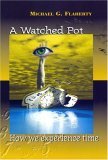on ‘Beautiful TV: The Art and Argument of Ally McBeal’ by Greg M. Smith
April 26, 2008
This month’s BAM Challenge is to read about beauty; the book I chose is Beautiful TV: The Art and Argument of Ally McBeal by Greg M. Smith (University of Texas Press, 2007). I had read about this book on Henry Jenkins’s blog and thought this month’s challenge gave me a good excuse to read the book.
 This work is unusual for television criticism in focusing on a so-called “middlebrow” series (p. 6) that is not currently being shown (and not even available on DVD in the US) — rather than one of the current ‘hip’ shows — and also in concentrating on the formal aesthetic and narrative qualities of the series instead of on its broader social or cultural significance.
This work is unusual for television criticism in focusing on a so-called “middlebrow” series (p. 6) that is not currently being shown (and not even available on DVD in the US) — rather than one of the current ‘hip’ shows — and also in concentrating on the formal aesthetic and narrative qualities of the series instead of on its broader social or cultural significance.
The book assumes some familiarity with the show, since character names are mentioned without any background information. A list of episode titles with original air dates is included but readers are referred to tv.com for more information. I had followed the series but didn’t remember some of the minor characters when their names were brought up in the course of the book. (“Raymond Millbury”? for example.) Sometimes looking up the actor and seeing a picture would help jog my memory.
In the introduction Smith discusses his reasons for writing about Ally McBeal and his approach to television criticism. (The full text of the introduction is available at the publisher’s website.)
The first chapter looks at the use of music in the show (where I learned the term “diegetic,” referring to music that seems to come from within the story world, as opposed to “nondiegetic” or background music that the characters aren’t supposed to hear). In chapter 2, Smith focuses on the innovative use of special effects to portray the characters’ subjective states.
The book then shifts to examining narrative and argument, first looking in chapter 3 at the network of supporting characters and how they function “as thematic variations on Ally herself” (p. 74). In chapter 4, the use of guest stars is analyzed, showing how “eccentricity” is employed as a stand-in for the more controversial concept of “difference.”
Chapter 5 is concerned with the overall argument of the series, which is focused on the subject of sexual harassment. The law firm of Cage and Fish specializes in sexual harassment cases, allowing the series to examine the role of the courts, while also looking at gender relations in the workplace and in the characters’ personal lives.
According to Smith (p. 191),
Ally argues that the law can be a blunt, unpredictable instrument when it is asked to alter mindsets. Attitudes such as tolerance and respect cannot be legislated, Ally McBeal asserts; they must be changed through the gradual process of debate.
The author discusses his use of the word ‘beauty’ in the afterword (p. 197):
The concept of beauty that emerges from this book is a fairly old-fashioned one: a cohesive system in which elegant, innovative formal technique serves to convey a unified, complex argument suitable for moral and ethical insight. … In arguing for the art and argument of a quite silly (and often annoying) television series, I want to reclaim our ability to talk openly, unashamedly, unironically, and rigorously about television as a beautiful object.
Beautiful TV is reminiscent of Everything Bad is Good for You by Steven Johnson, which argued for the increasing cognitive complexity of television. Shows that develop over many seasons can become quite epic in scope, sometimes adding up to more than a hundred hours of programming (111 episodes are listed for Ally McBeal), although the effect is somewhat diluted by the week’s gap between episodes. With the increasing availability of DVDs and on demand programming, and the efforts of critics such as Smith, perhaps television’s beauty will come to be more widely appreciated.




